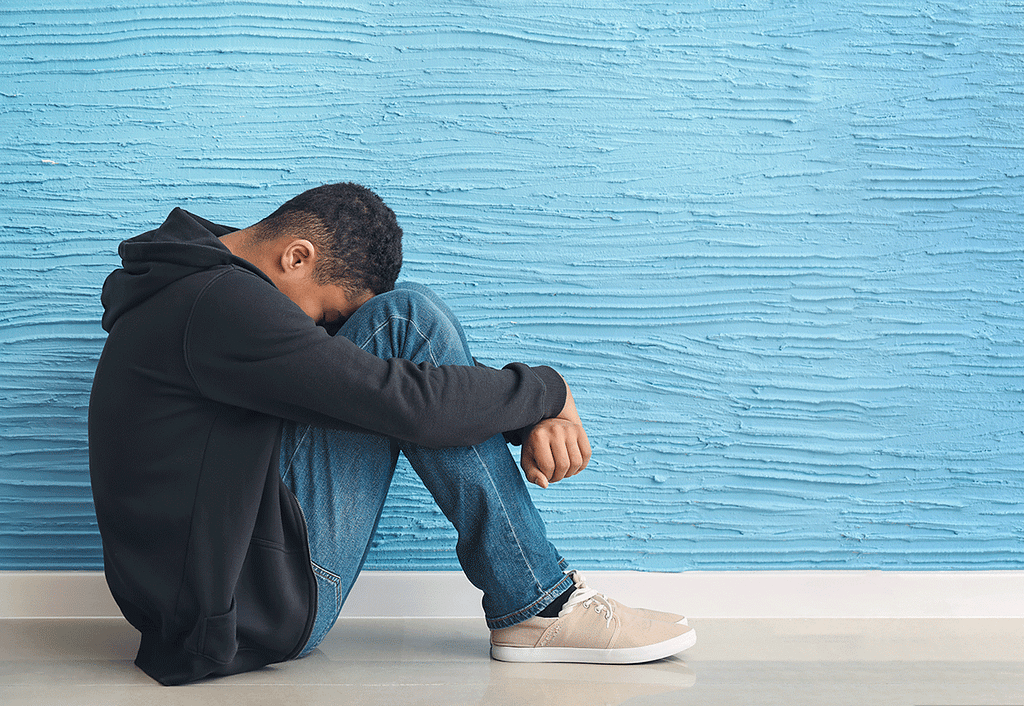There is a difference between being unhappy and depressed. When you suffer from depression, you experience persistent sadness that we usually feel when going through challenging moments in life, such as a break-up or loss of a loved one. A major depressive disorder is a more complex form of depression. It is essential to understand the specific signs of depression in teens to be in a better position to help a loved one suffering in silence.
Typically, people suffer from this disorder when in two weeks or more, they experience a depressed mood. If your teenaged son is experiencing this condition, call us today at 828.519.5047 for information about depression treatment for teen boys.
The Common Signs of Depression In Teens
Studies reveal that millions of US teens experience major depressive disorders every year. Teens and young adults account for the highest cases of major depressive disorders.
There are several symptoms of depression, but victims may display a combination of different signs, depending on the extent of the condition. We will discuss the most common symptoms of depression.
A Hopeless Outlook
Depression impacts general feelings toward life. Since it is a mood disorder, it makes people feel helpless and hopeless in life. When left untreated, the condition leads to feelings of worthlessness, guiltiness, and self-hate. Be cautious of negative recurring thoughts when the mental health condition deteriorates.
Loss of Interest in Hobbies
If your teen aged son is battling depression, things that used to excite him in the past will no longer make you happy. Depression interferes with your ability to feel pleasure, which is why victims are mostly withdrawn. Even activities that most people enjoy, like basking on a sandy beach on a summer afternoon, will not brighten your mood.
Fatigue and Sleeping Difficulties
Fatigue is among the primary reasons you may withdraw from doing the things that used to give you pleasure in the past. You will feel tired and overwhelmed for most of the day for weeks on end. In a brutal cycle, fatigue leads to excessive sleeping. However, sometimes, you may experience insomnia due to lacking peace of mind.
Anxiety Disorders
Although there is no evidence that depression causes anxiety, statistics reveal that the two conditions co-occur. Some signs of depression are similar to those of anxiety.
An anxiety disorder has various symptoms, such as:
- Excess fatigue
- Muscle tensions
- Persistent worry
- Inability to concentrate
- Disrupted sleeping patterns
Uncontrollable Emotions
Victims of depression display spontaneous mood changes. One moment you can yell in anger, and the next minute cry uncontrollably. Such sudden emotional changes arise from an unstable emotional state.
Suicidal Thoughts
Experts concur that depression is linked to suicide. According to the Centers for Disease Control and Prevention (CDC), tens of thousands of Americans die every year from depression. Before committing suicide, victims display other warning signs.
For example, victims of major depressive disorders often talk about taking their own lives or make the first attempt. If you or someone you love is contemplating suicide, contact the national hotline for suicide prevention today at 1-800-273-8255.
Getting Professional Help for Depression at Foothills at Red Oak
Do the above symptoms describe how your son has been feeling in the past two or more weeks? If yes, he may be battling a major depressive disorder. It is time to seek professional help.
At rehab, therapists have different treatment approaches to assist your teenaged son in recovery, including:
Family Therapy
Family therapy provides a safe space for family members to express their feelings, communicate more effectively, and work through conflicts together. By facilitating open and honest dialogue, it helps in strengthening the bonds within the family, fostering a deeper understanding and respect among its members.
Cognitive-Behavioral Therapy
Cognitive-behavioral therapy, or CBT, is a hands-on, practical approach to problem-solving. It aims to change patterns of thinking or behavior that are behind people’s difficulties, and so change the way they feel. It focuses on the here and now—problems and solutions—rather than digging up any past.
Dialectical Behavior Therapy
Dialectical behavior therapy is a comprehensive cognitive-behavioral treatment that focuses on the psychosocial aspects of therapy. It marries the change-oriented techniques of cognitive-behavioral therapy with acceptance, mindfulness, and distress tolerance strategies, thus aiming to improve emotional regulation and develop skills to manage stress and improve interpersonal relationships.
Experiential Therapy
Experiential therapy uses expressive tools, and activities, such as role-playing, acting, props, arts, and crafts, music, animal care, and various forms of recreation, to re-enact, and re-experience emotional situations from past, and present relationships. This therapy helps individuals confront unresolved issues and experience feelings that they may have been suppressed or denied.
Equine-Assisted Therapy
Equine-assisted therapy is a form of experiential therapy that involves interactions with horses. It does not necessarily involve riding but includes grooming, feeding, haltering, and leading a horse. This therapy has been shown to help individuals develop empathy, responsibility, and leadership. It promotes emotional growth and learning, enhancing personal insight, self-esteem, and social skills.
Get the Help Your Teenaged Son Needs Today
Consult our health care experts if your teenaged son is exhibiting the signs of depression. Reaching out for professional assistance will go a long way to facilitate your son’s recovery. Call Foothills at Red Oak at 866.300.5275 or use our online contact form to schedule an appointment.





